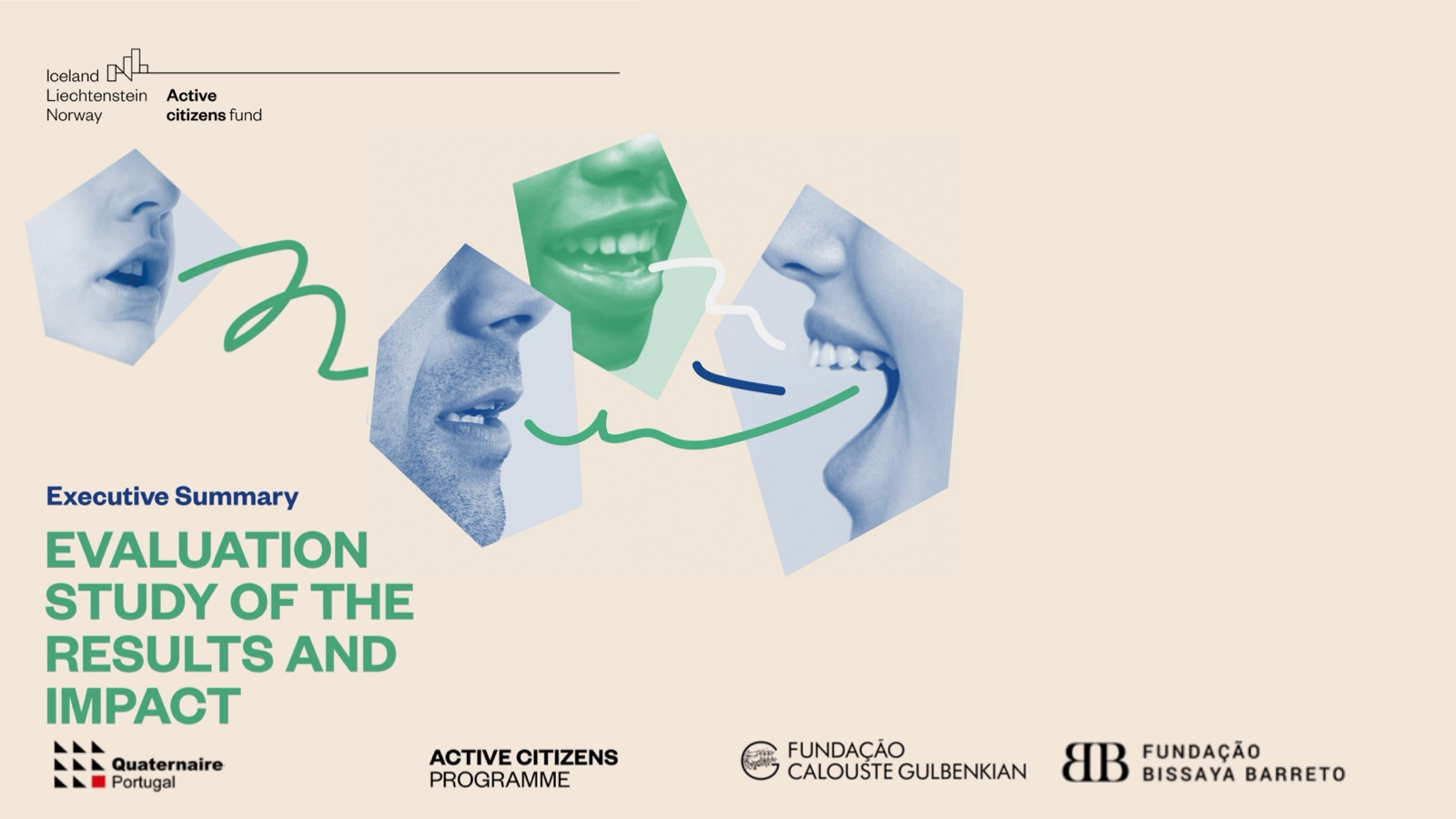The impact of the Active Citizens Programme

The evaluation, conducted by Quaternaire Portugal and coordinated by António M. Figueiredo, assessed the outcomes of the Active Citizens Programme (ACP) from 2018 to 2024. It examined not only the Programme’s achievements but also the current and potential impacts of its funding.
The study aimed to identify strengths and weaknesses in its implementation, compare it with similar initiatives in Europe, highlight best practices, and offer recommendations for future efforts to strengthen civil society.
Focusing on six key areas—Relevance and Coherence, Effectiveness, Strengthening Civil Society Organizations, Strengthening Bilateral Relations, Social Impact, and Management System Quality—the evaluation addressed critical questions regarding the Programme’s implementation, results, and impact.
A brief analysis of the participating organizations underscored the ACP’s distinctive role in tackling pressing issues in Portuguese society. These include providing funding for volunteer initiatives, supporting organizational capacity-building, and enhancing advocacy capabilities.
The evaluation resulted in 19 recommendations, emphasizing the importance of fostering innovation in areas often overlooked by public policies. It also called for balancing continuity with opportunities to enhance innovative projects, providing technical support to smaller NGOs in less populated areas, promoting collaborative practices and knowledge-sharing, and strengthening ties with institutions and policymakers.
The Calouste Gulbenkian Foundation commissioned Quaternaire Portugal to conduct the Results and Impact Evaluation Study of the Active Citizens Programme as part of the initiative’s framework. The Programme, funded through the Active Citizens Fund/EEA Grants by Norway, Iceland, and Liechtenstein, is dedicated to strengthening civil society and promoting democratic values.